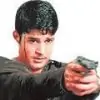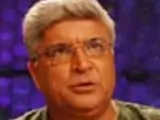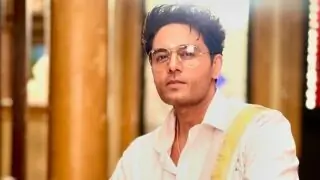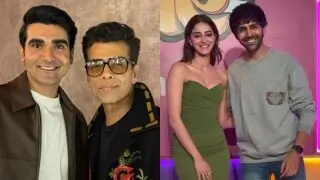When people write about themselves they usually begin with their hometown. Which city should I call my own? Born in Gwalior, it was in Lucknow I came to my senses only to lose them a little later in Aligarh. In Bhopal I sharpened my wits but it was in Bombay that I really came alive. So why
don't I just go into a small flashback, it will be easier for you to read and for me to write my story.
City-Lucknow... Characters: My maternal grandparents, other relatives and I.
I am eight. My father is in Bombay and mother in her grave. The day is spent playing cricket with my younger brother in the courtyard. A fierce looking tutor comes every evening. That he is being paid Rs 15 a month is a fact I am reminded of every day. Each morning I get a half anna and every evening an anna to spend. In the mornings I buy coloured sweets from Ramjilal, the neighbourhood grocer and in the evenings the one anna gets me chaat from Bhagwati the hawker from across the road. It's a wonderful life! School has reopened. I am admitted in class six in a well known school
of Lucknow-Calvin Talukadar College. Once upon a time it was only the sons of the aristocracy who could study here but now mere mortals like me also can but still it is an expensive school with a monthly fee of Rs.17 (a fact which is..well)! Many classmates have wristwatches-they come from wealthy families. They wear beautiful sweaters.One even has a fountain pen. These kids buy eight anna chocolates during recess (Bhagwati's chat is not appetizing anymore). Just yesterday Rakesh announced that his father was sending him to England to study. And yesterday my grandfather chided,"At least pass your matriculation, you may find a job stamping letters in a post office." At an age when boys dream of becoming engine drivers, I had decided to become rich when I grew up.
City Aligarh... Characters: My Aunt,other relatives and I.
My younger brother continues to stay in Lucknow with my grandparents. I have been assigned to my aunt who has come away to Aligarh.Obviously one family cannot be burdened with two orphans. In front of her home beyond a sprawling ground ahead is my school.Aged fourteen I am in class nine. In Aligarh's winter is for real. The school bell strikes at seven. I am on my way there. Razor sharp wind-chill cuts across the face sniping at the nose and ears. School is another story. Somehow I manage to pass. My uncle had remarked to my teacher the day I was admitted to this school, Minto Circle,"Be watchful, this lad has more interest in film songs than his studies."I have so far seen Dilip Kumar's "URAN KHATOLA" and Raj Kapoor's "SHREE 420".I know a lot of film songs but no one is even allowed to listen to them at home forget about singing them.So I sing aloud while returning home from school (Excuse me but the early morning chill on way to school would have permitted warbling of only classical ragas).Since my school is near the university except for some classfellows I am more friendly with boys from the University with whom I like to sit around in cafes. Often I play truant and the school authorities complain and I get a hiding at home though it doesn't make much of a difference. I don't care for school books but love reading novels inspite of being reprimanded at home. Whenever there is a contest of Urdu poetry at the University it is I who represents my school and win prizes. All the boys and girls of the university can identify me.I am happy at this recognition more so by the girls.
...I am fifteen and growing up. For the first time helped by my friend Bilu I write a letter to a girl. I encounter the girl next day in an empty Badminton court and bravely hand over the letter. It's the first and last love letter of my life (I cannot remember what I wrote in that letter though I remember the girl well). I am leaving Aligarh after my matriculation. My aunt weeps as she bids me farewell prompting my uncle to say that I was going to Bhopal and not to war. (It's another matter none of us realized then that I was going to war in a way.)
City Bhopal...Characters: Innumerable benefactors,several friends and I.
En route Aligarh to Bombay my father almost drops me midway at Bhopal. I stay a few days with my step mother but soon move out. I study at Safiya College and live off friends whose list if I were to compile I would end up with a telephone directory. I am in BA 2nd year and live with a friend Ejaaz. He pays the rent, I just live. Although a student, he earns by giving tuition hence friends have nicknamed him "Master". I have quarreled with Master and we are not talking to each other so I cannot ask him for money. I help myself by delving into the pockets of his trousers hanging on the wall or sometimes he leaves behind a rupee or two by my bedside.
It's my fourth year in college and I am in my BA final. I have never paid my fees and no one has ever asked.This can happen only in Bhopal.
I have been given a vacant room in the college campus to live. After classes are over I pull over a few benches lay my bedding to sleep.It's quite comfortable except for the bugs in the benches.The restaurant where I have my meals on credit has closed down unable to sustain freebooters any
longer. There's a shoe shop in its place. Where will I eat now? I am lonely,ill with a high fever and famished. Two collegemates with whom I am hardly acquainted bring some food for me in a tiffin. Strange fools those two but I'm clever by half. I hide my tears till they leave. I recover from
my illness and become friends with them. I am a keen debater in college and have won the Rotary Club Prize for three years running. I have also won several Inter-college debates and have represented Vikram University at the National Youth Festival in Delhi. During college elections two opposing groups want me to speak on their behalf. I have no interest in elections but am keen on public speaking so I end up canvassaing for both groups. I have lost the vacant room in the campus and now live with Mushtaq Singh who earns even as he learns andd is also the President of the College Urdu Society. I am good at Urdu. He is better. I know countless couplets. He knows
more. I am away from my family. He has no family. He seems to be better than me every which way. For a year our friendship has thrived on food and clothes. He provides for both. He is a true Sikh yet buys my cigarettes for me.
I have begun to drink occasionally. Mushtaq and I sit drinking one night as he tells me tales about the partition and its horrors. Although he was very young yet he remembers: In Delhi's Karol Bagh two Muslim girls were thrown in a scalding drum of coal tar and another Muslim. I interrupt him asking whether he was trying to turn me into a Muslim fundamentalist with his horrific tales!Every story of terror has two sides.What about the other point of view?
Mushtaq Singh smiles.What do you want to listen? "My story" or a general account.Your story, I say. "We were a family of eleven. Ten of them were hacked in front of my eyes..."
Mushtaq remembers a lot of Urdu couplets-I have been staying with him for over a year. I fail to understand one thing. Good guys , whatever their faith, always end up on the gallows. How was he spared? Nowadays he lives in Glasgow. While we were he were parting I took off his "kada" and have worn it on my wrist ever since. Whenever I think about him he seems right there with these lines on his lips."You pride a lot on your failures, you are unaware about my shortcomings."
City Bombay...Characters:The Film Industry,Friends,Foes and I.
On October 4,1964 I alight at the Bombay Central station. This is the court where my fate will be sealed. Within six days of my arrival I have to leave my father's home. I have 27 paise in my pockets. I am happy that if I am able to add another paisa to my riches I will be the winner and life a looser.
It's been two years in Bombay. There's still no certainty of either food or shelter. I have managed to write dialogue for a minor film for Rs100. Sometimes I get some work as an assistant or otherwise but often even this work eludes me. I go to a film producer's office at Dadar to collect money for some comic scenes I have ghost written but which will be credited to a famous screen writer in the film. The office is shut. I think about the long trudge back to Bandra. I have just enough money to either grab a bite or a bus ride. I buy some gram and start walking. Ambling past the gate of Kohinoor Mills I think that things may change but this gate will remainand one day I will drive by in my own car. I have got an assignment to write dialogue in another film. I reach the directors' home with the scenes. He is having pineapple for breakfast as he takes and reads the scenes. Throwing
the papers at my face he dismisses me by saying I would never become a writer. Walking out into the blazing sun I wipe a tiny tear. I shall show this director someday but suddenly a strange question comes to my mind, "Does this fellow have pineapple for breakfast everyday?"
It is perhaps two in the morning. The Bombay Monsoon is at its worst fury. The sea seems to be pouring from the sky. I am sitting under the pale light of a weak lamp on the steps of Khar Station's portico.Closeby three men sleep on the floor oblivious of the storm.In a distant corner a wet dog shivers away. Incessant rain pours on dark empty streets. The lights have gone out in the noiseless highrises. People must be sleeping in their homes. My father too has a home in this city, what a large metropolis is Bombay and how insignificant am I? Once in a while even the bravest can feel fear.
For a year now I have been living in Kamaal Studio (present day Natraj Studios). I sleep wherever I fancy-sometimes in some verandah, sometimes in some corridor, sometimes under some tree. There are several homeless, jobless people like me who live here. I befriend one such man Jagdish. Everyday he has a new plan to get a free meal and a free drink.Infact Jagdish has turned survival into an art-form.
I have become acquainted with a second hand bookseller on the pavement outside Andhei Station so there's never a shortage of books to read which I do late into the night in the dim light of the studio compound. Friends often mock saying I would soon go blind with all this reading. I get a chance to sleep inside a room. This has the studio wardrobes where costumes of the film Pakeezah are stored. The shooting of this film has been suspended as Meena Kumari and Kamaal Amrohi have separated. One night I open one of the wardrobes and amidst assorted shoes and sandals lie the three FILMFARE trophies which Meena Kumari has won. I dust them and keep them aside. This is the first time I have touched a film award trophy. Every night I bolt the door and with the trophy in my hands I stand before a mirror imagining the day I would be receiving these awards; amidst all the applause how I would wave to the audience. Even as I battle with my fantasies a notice is put up in the studio prohibiting non workers from staying in the compound. Jagdish suggests an interim arrangement of shifting to the Mahakali Caves (these ancient Budhist Caves in crowded East Andheri near Kamalistan Studio were a part of a desolate landscape in those days where hemp smoking mendicants lay about). The mosquitoes here are monstrous and they wake you up by just sitting on your body forget their bites. In one night I figure out that to sleep here you need the stupor of hashish. Somehow I pass three days before a friend asks me to stay with him at Bandra. As I leave for Bandra Jagdish says that he too will find a new abode in a couple of days (This was my last meeting with Jagdish. In the years to come life took me to new heights but for eleven years Jagdish languished in those caves in a haze of pot-smoke and hooch. He was cremated with the sadhus and neighbouring slum dwellers pooling together some money. The End. My friends and I learnt of his death much later. I often reflect what is so special in me which Jagdish lacked? There is always the possibility that a friend of Jagdish's could have invited him to stay at Bandra and I left behind to perish in those caves. Why the vanity then?).
The friend with whom I am living in Bandra is a professional gambler. He and his two accomplices are card sharps. They teach the tricks to me too. For a few days the cards provide the means of survival but then the three men leave Bombay and once again crops up the question of next month's rent. A famous and successful writer calls and offers me a job at Rs 600 per month. The work is to ghost write for him. I contemplate. If I accept I may end up doing the job for entire my lifetime. On the other hand there's is the rent to pay. I reject the offer after three days of thought. Days, months, years roll by. It's been five years in Bombay. "Roti" is a moon and fate stormclouds. The moon reveals itself on somedays and is elusive on others. These have been five difficult years for me but I have retained my dignity. I not disillusioned. I have faith I shall overcome. I am not born to just survive. At last in November 1969 I get some work which in film parlance is called a "break".
Success is like Alladin's magic lamp. Suddenly the world is a beautiful place and the people good. In a matter of just more than a year I have got a lot and more is on its way. I see the dust I touch turn to gold. My first house, my first car. Dreams are coming true but life is still lonely. I meet Honey Irani on the sets of "SEETA AUR GEETA". Open hearted frank she has a cheerful demeanour. Within four months we are married call many of father's friends to my wedding but not my father (Even the genie of Alladin's lamp cannot heal all wounds. It takes time.) In two years we are proud parents of a daughter Zoya and a son Farhan.
The next six years see a string of blockbusters. Awards and acclaim. Fame and fortune. Parties and write ups. Travel around the world. Bright days and dazzling nights. Life is a technicolour dream and like all dreams it shatters. For the first one of my films flops (there have been several hits and misses subsequently but the joy with its innocence is lost somewhere).
My father dies on August 18, 1976 (Nine days before his death he had given me his last book. He had autographed and inscribed it with these words "You will remember me when I am gone. "He was right.) Until then I had thought of me as a rebellious and angry son. What am I now? I look at me and the world with a different point of view and ask myself whether I have got what I wanted from life? Others do not realize it but I am no longer enamoured or content with things which hitherto gave me much joy. I am attracted to things more abstract. I have poetry in my genes and an abiding interest in it as well. I have always known even in my adolescence that I could write poetry but have not done so thus far as a symbol of my angst and rebellion. I write my first poem in 1979 and make peace with both my father and my inheritance. During this period I meet Shabana. Kaifi Azmi's daughter is too perhaps retracing her roots. She too is troubled by new questions and doubts. It's not surprising that we come close. I am being metamorphosed. Even my professional relationship ruptures. My friends are noticing my transformation. Honey and I are separated in 1983.
(Our marriage may have fallen apart but even a divorce does not diminish our friendship. And if our children do not have the bitterness of a broken home it is more to Honey's credit than my doing. Honey is today a successful screen writer and a good friend and there are but a few in this world for whom I have as much respect as I have for her).
Although I had moved ahead but life was becoming a journey which goes from a hotel room to a hospital bed. I always used to drink but began drinking more. This is one phase of my life I am ashamed of and if people tolerated me during this time it was their benevolence. It was quite possible that I could have died during one of my drinking bouts. However someone's remark one morning touched me so much that I have never touched alcohol since and will not in the future.
Today when I look back at life I see a river emerging from the mountains, battling with rocks, meandering through gorges, bubbling and frothing, creating ripples as it flows. Where once it broke its banks the river has now reached the plains. Tranquil with waters running deep.
My children Zoya and Farhan have grown up and are embarking on their journey in worldly life. In their eyes twinkle dreams of tomorrow. Salman, my younger brother is a successful psycho-analyst in America. He has written several books, is a good poet, a loving husband and a doting father of two intelligent kids. Life was no easy journey for him either but with his hard work and dedication he has reached his destination and beyond. I am happy and so is Shabana who is not just my wife but also my beloved who has a noble heart and an invaluable mind. "She is a woman of my times", my uncle Majaaz could be talking about Shabana when he wrote these lines.
Today I have nothing to complain to life but still I remember one particular day-January 18,1953. Place: Lucknow, my grandparent's home, aweeping aunt takes my six year old brother to a a large room in the house where many women are seated on the floor. I can see the uncovered face of my mother lying wrapped in a white shroud. My old grandmother held gently by two women sobs silently besides her. My aunt takes us two brothers close to bed and bids us to have a last glimpse of our mother. I had celebrated my eighth birthday just yesterday. I am intelligent and know what death is all about. I gaze intently at my mother's face so that I can freeze it in my memory. My aunt asks me to promise my mother that I would do something in life, become something in life. I cannot say a word but just keep staring till someone covers my mother's face with the shroud.
It is not that I have not done anything in life but I have done just a quarter of what I can. This thought makes me restless. Always...
Edited by dolly - 19 years ago



































